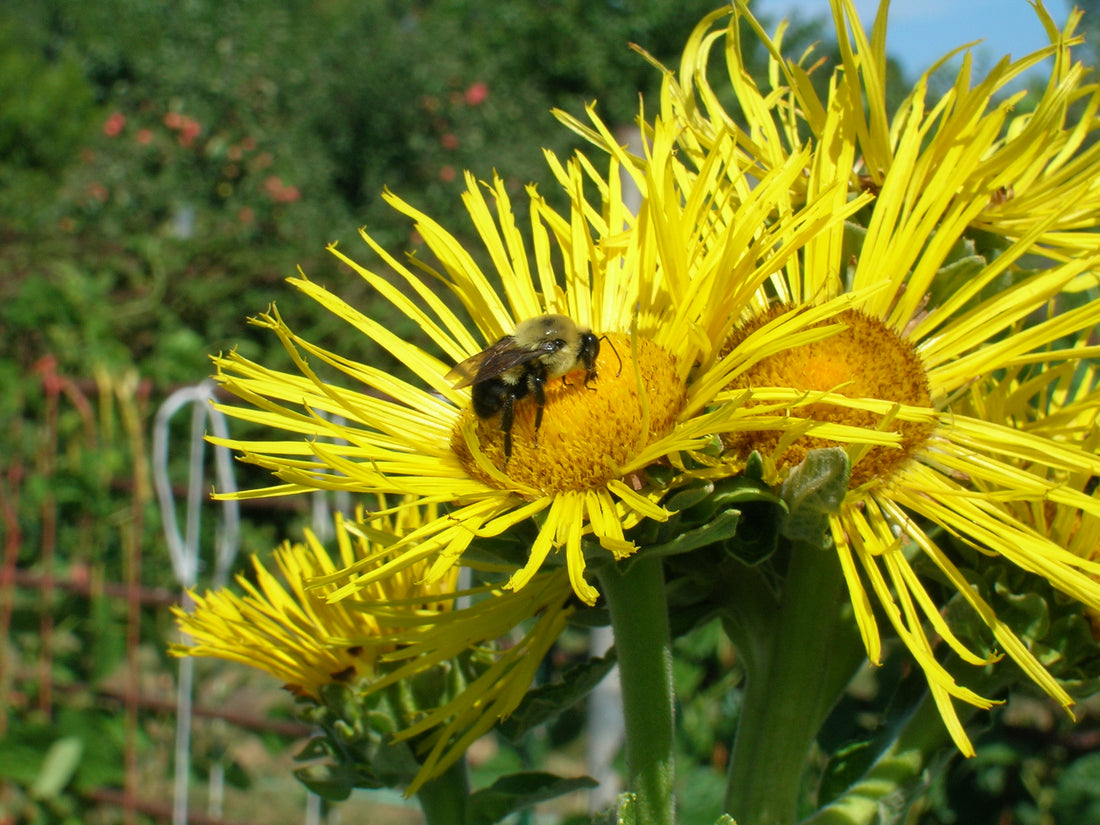
Elecampane
Share
This tall plant which produces yellow flowers, is a member of the Asteraceae family. Its Latin name is Inula helenium. A native to Europe, this plant is widely cultivated in North America, and the root is used in medicine.
Primary properties:
Lung tonic, expectorant, antitussive (cough suppressant), antibacterial, vermifuge (antiparasitic), liver & digestive stimulant, diuretic, anti-inflammatory
Primary uses: coughs, lung congestion, bronchitis, asthma, other lung issues, weak digestion, parasitic infections, edema
This is herb is strengthening and rebuilding to the lungs and digestive tract, while also being a good herb for acute lung conditions as well. Carbohydrates in the root, including inulin, are strengthening to the immune system and used as food by the beneficial flora in our intestinal tract. Oils and resins in the root give it aromatic, antibacterial, and antiparasitic properties. This herb can be decocted (simmered in hot water) to prepare a tea or can be taken in the tincture (liquid extract form), which will extract more of the oils & resins from the plant. The standard dose is 1 Tablespoon of the herb per cup (10-12 oz) of water, simmered for 15-20 minutes, consumed 2-5 times a day (taken less often if for rebuilding or a chronic condition, more often if acute). Or take the tincture at a dose of 2-5 dropperfuls in a little water or juice every few hours for acute lung congestion/cough/bronchitis, and take 2-3 times per day for maintenance or a chronic condition.
